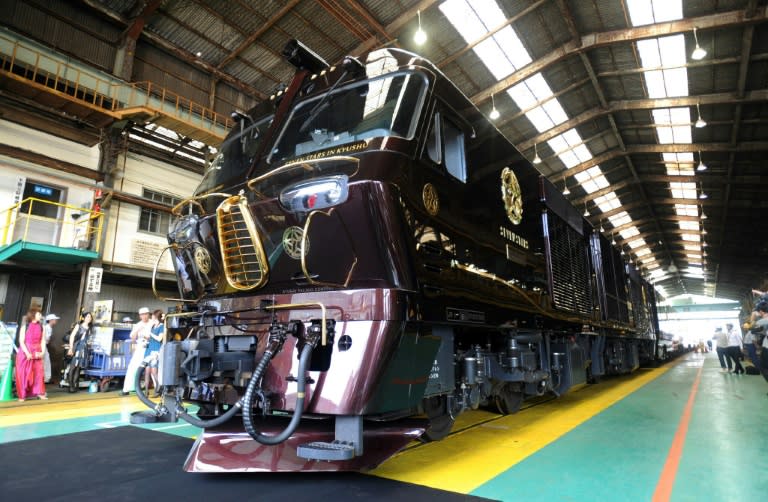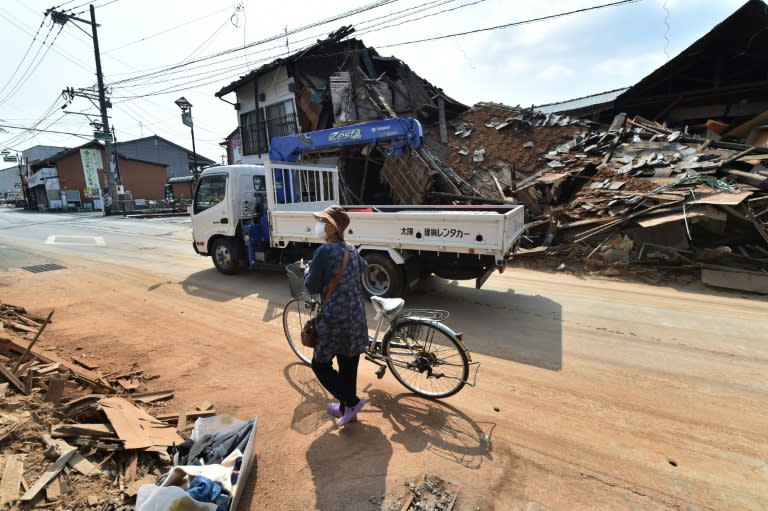Japan's Kyushu Railway skyrockets on Tokyo debut
Japan's Kyushu Railway rocketed Tuesday as the former state-owned firm made its trading debut in Tokyo after scoring one of this year's biggest initial public offerings. The firm soared as much as 20 percent in the morning before ending at 2,990 yen, up 15 percent from its IPO price. The firm raised 416 billion yen ($4.0 billion), making it the world's third biggest share sale this year after Postal Savings Bank of China's $7.4 billion listing in September and an offering this month from German renewable energy firm Innogy, worth about 5.0 billion euros ($5.4 billion). Tokyo sold shares in the struggling regional railway, better known as JR Kyushu, hoping to attract big-saving Japanese households as part of broader efforts to kickstart the economy. The company, born out of the 1987 breakup of Japanese National Railways, has struggled with a money-losing railway business as the region's population declines. To counter those losses, the firm -- based in Fukuoka, about 900 kilometres (560 miles) southwest of Tokyo -- has diversified into real estate, hotels and restaurants. "We've focused on non-rail assets and that’s led to synergies," president Toshihiko Aoyagi said after the listing ceremony in Tokyo. "We want to step that up in the future." Chairman Koji Karaike, 63, a company veteran and judo black belt, said he could not have imagined listing the company three decades ago. "No one, including ourselves, thought we'd ever be able to list our shares," he told Bloomberg News in an interview this month. With losses equivalent to almost 30 percent of sales, the company "faced a sense of crisis that we would fade away", he said. Operating a total of 2,273 kilometres (1,410 miles) of railway with just over 560 stations, it is the fourth of the former Japan National Railways group to be publicly traded, following the listings of its three bigger peers in the 1990s. Its revenue came to 378 billion yen in the fiscal year ended in March. - 'Money losing lines' - Last year, the government sold off shares in state-owned behemoth Japan Post, which has about 24,000 offices nationwide, after an IPO that raised about $11.5 billion. Kyushu Railway faces an uphill battle in closing unprofitable routes as trains remain a key mode of transport for many, analysts said. Japan has a dizzying array of bullet trains and local lines that criss-cross the country. "The closing price indicated that the listing was welcomed by the market," said Kazumi Tanaka, a Tokyo-based analyst at DZH Financial Research. "But JR Kyushu is faced with several problems, including how to deal with the declining population in its region and money-losing lines. "The firm should take advantage of the listing as an opportunity to reinforce the company as it faces stakeholder scrutiny," he told AFP. The Kyushu region in Japan's far southwest has seen a jump in tourism in recent years, but it is also regularly plagued by natural disasters including typhoons and earthquakes. In April, two strong quakes hit Kumamoto prefecture in Kyushu, leaving at least 50 dead and causing widespread damage. The disaster cost JR Kyushu millions of dollars in lost sales and repairs.




